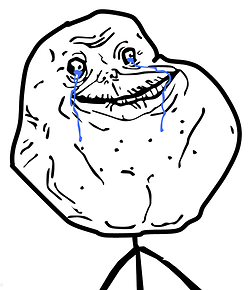To Thine Own Self Be True: A Social Network Experiment
Several months ago, I completely removed myself from all my social media networks. It was sort of a personal experiment. I wanted to remember what it felt like before my “friends” and I were completely interconnected at any or all points of the day. How did I, personally, connect with people without likes and status updates? Would I miss sharing and viewing beach vacation photos and drunken adventures? I’ve since returned to my social networks, but here is some of what I’ve discovered while being off the social map.
The Obvious Disconnect
The early stages of giving up Facebook and Twitter are common symptoms of social media withdrawal. I feel these are less important, but I’ll list them anyway:
- difficult to plan or participate in planning for events or gatherings
- left out of conversations about past events or gatherings
- no pictures of delicious food
- missed lots of birthdays
Basically, I was out of the loop.
The Less Obvious Disconnect
Now, here’s the deeper more interesting stuff. Throughout the entire time I was off the map, I noticed how much of my life I actually wanted to share with people. I found it very difficult to keep my phone in my pocket. If I tripped and fell, I wanted to Tweet about it. If my sports team won, I wanted to brag about it on Facebook. If I was making an omelet, I wanted everyone to see a picture of it. Most of all, I wanted people to like everything I shared.
It was a sad revelation. Was I really that insecure? Did I really need that sort of validation from my “friends”? Is my ego so large, that I needed to boast about my life to everyone and expect them to actually care? The answer to this was a loud and resounding YES, and I wasn’t happy to admit it.
I’m no scientist or psychologist, but I strongly believe there is a positive relation between how frequent and personal Facebook status updates are and a person’s insecurity. In other words, the more you post or share, the more insecure you are. It would be hard to quantify a “personal Facebook status update”. It would be even harder to quantify “personal insecurity”, but I feel like you could graph both and the lines would trend in the same direction.
Check your feed. Chances are someone is either complaining or bragging. It’s subtle, but that’s all we’re doing:
Post: A photo of your food.
Translation:
EVERYONE LOOK AT MY DELICIOUS FOOD! AREN’T YOU JUST SO ABSOLUTELY JELLY OF ME!?
Post: “Getting my run on! - at 24 Hour Fitness”
Translation:
OH EM GEE I AM SO ATHLETIC! EVERYONE LIKE HOW FIT AND ATHLETIC AND BUFF I AM!
Post: “It is better to have loved than…” or some other corny, sad cliche
Translation:
SOMEONE PLEASE GIVE ME SOME SYMPATHY… I DON’T HAVE ENOUGH SYMPATHY TO GIVE MYSELF, I NEED MORE…
Post: “That was awesome!” or some other nonsensical phrase without any actual context
Translation:
SOMEONE PLEASE BE INTERESTED ENOUGH IN MY LIFE TO ASK WHAT I’M TALKING ABOUT. I PURPOSELY LEFT CONTEXT OUT SO SOMEONE WILL ASK! C’MON… PLEASE?
Alright, fine. This is exaggerated, but I feel like I’m in the ballpark.
To Thine Own Self Be Liked
The greatest thing I took away from this experiment is how to live without the need to be “liked” by others. It’s something we all preach about. We’re all taught to live our own lives the way we want it. Yet, how many of us exhibit such behavior when all we do is complain and brag on our social networks?
I challenge you. Disconnect. See if you can do it. If you really want to be connected to your friends, do it in person or make a phone call. If it’s important enough, you’ll take the time to update them. I think you’ll find that the only “like” worth a damn in this world is your own.

